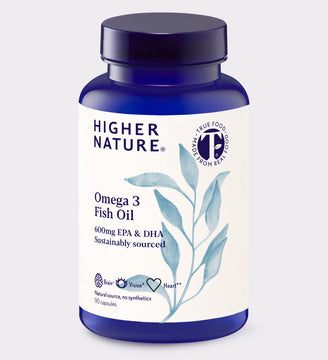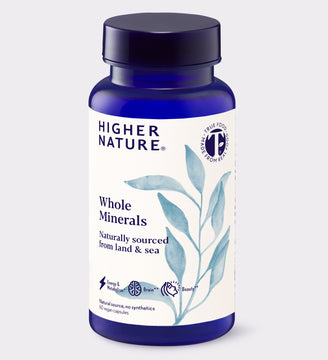
Is working from home becoming a pain in the neck
Elizabeth Houston - Higher Nature Nutritional Therapist - Dip BCNH mbant mCNHC
Is working from home becoming a pain in the neck (literally?)
If you are now unexpectedly working from home you may find you experience an increase in musculoskeletal problems such as back, neck or shoulder pain, wrist or leg problems or headaches. This is particularly true for the millions of us who already suffer from ongoing back issues. The NHS estimate that up to 8 in every 10 people in the UK are affected by back pain at some point in their lives (wow!).
Few of us were prepared for the reality of working from home for an extended period, many thought we’d be back in a couple of weeks. Since we now realise that most of us will be working from home for some time yet, it’s vital to address these issues before they result in long term problems and ultimately time off work.
Firstly, how’s your set up? Take some time to make sure your ‘office’ space is suitable for working long hours. Do you have an adjustable chair? Is your posture straight or do you need to lean forward, are you slumping? Crossing your legs? Please don’t tell me you’re working on the sofa, or worse in bed! If you don’t have a proper chair or desk at home can your company buy/ lend you one? Or at least supply you with a back support? it’s not unreasonable to ask!
Laptops are the worst offenders but to make it easier try and get hold of a mouse and a keyboard to avoid hunching over. Once you have these, raise your laptop up (books come in handy for this) so that the screen is at eye level.
Keep moving, get up and walk around as much as possible, can you stand to make a phone call? Get up and make yourself a cup of tea and stretch. Don’t sit at your desk during lunch break, go for a quick walk if you can. It’s important to remember studies show that employees work more efficiently, have increased productivity and are more focused and have more energy if they take regular breaks. Not to mention looking after your back now is an investment for less time off and future issues.
Quick Stretches: the worst thing is staying in one position for too long, so doing these stretches at your desk every hour or so can help you loosen up.
Shoulder shrugs
Most of us hold on to a lot of tension in our shoulders these simple movements can release some of this tension.
- Lift the shoulders up towards the ears, squeezing them hard. Hold for 1 to 2 seconds and relax down. Repeat for 8 to 10 reps.
- Next, roll your shoulders - start rolling them forward 5 times then reverse and roll them backwards.
Back twist
- In a seated position with the feet flat on the floor, gently rotate your chest towards the right keeping your waist straight.
- Only twist as far as you comfortably can and keep the back straight while keeping the hips square. Hold for 10 to 30 seconds and repeat on the other side. Do 3 or 4 on each side.
Neck stretches
Simple but effective, take your neck through its range of movements to loosen up.
- Start with your head neck and back straight forward.
- Lower your chin toward your chest and hold for 10 seconds. Relax, and slowly lift your head back up.
- Tilt your head towards your right shoulder and hold for 10 seconds then switch to the other side.
- Look up to the ceiling (not too far) hold as long as its comfortable and release.
- Repeat the set several times.
If you find yourself regularly reaching for the painkillers try these alternatives.
It’s well known that over the counter pain killers will lose their effectiveness the more you use them and not forgetting they often come with a list of side effects as long as your arm. People who suffer from chronic pain are crying out for natural solutions, so here are my favourite supplements.
Magnesium Great for relaxing stiff muscles and relieving stress and headaches. Magnesium can also aid sleep so great to have at bedtime. Devils claw has been traditionally used for relieving muscle and joint pain. MSM and glucosamine can help maintain the health of joints and cartilage.
Some natural substances help relieve pain by reducing inflammation. Inflammation is your bodies response to infection, injury or illness. Although in the short-term inflammation is a necessary healing process long term or chronic inflammation results in pain and swelling and is a factor in conditions such as arthritis.
Turmeric is now well established for its anti-inflammatory benefits, widely studied for its effectiveness for a range of inflammatory conditions such as arthritis. The fatty acids EPA and DHA found in omega 3 Fish oils have the ability to reduce molecules and substances linked to inflammation. Many people fail to eat the recommended 2-3 portions of oily fish every week so a supplement is a great way to ensure you are getting enough of these essential fats.
*if you taking medication and are considering taking supplements please contact our Nutrition team for advice.


















